Member companies participate in global GxE cupping experiment
Quality evaluation of International Multilocation Variety Trial samples is underway
This story has been updated as of December 2023. Click here to read the update.
In June 2023, experienced coffee cuppers from member companies around the globe will take part in providing taste and sensory feedback to the world’s largest coffee variety trial. Their feedback is being used to understand the impact of different environments on cup quality—critical knowledge to inform future breeding efforts—and will be provided to participating countries to help them determine which varieties might have high-quality potential in their respective regions.
This activity is part of the International Multilocation Variety Trial (IMLVT), which tests the performance of 31 top-performing coffee varieties—most of which have never been tested on a broad basis—across 28 testing sites in 16 countries around the world. WCR and its partners evaluate these coffee varieties on three high-priority traits, including yield, disease resistance, and cup quality. In addition to measuring how plants perform in each location, the trial also measures how stable or variable these traits are across different environments. This effect is commonly referred to as the “gene-environment” or “GxE” interaction. A subset of 10 varieties from six countries are being shared with expert Q graders from WCR member companies for roasting and quality evaluation in 2023; this is the third year of data collection.
In 2021 and 2022, cuppers from 25 and 29 respective companies worldwide provided quality evaluation of 100 samples from the trial. In 2023, cuppers from 24 companies will participate. In addition to following the standard SCA cupping protocol, participating cuppers also provide feedback on each sample’s flavors and aromas, and the extent to which the sample is desirable for product development.
In the initial 2021 cupping, some locations produced higher overall cup scores than others, and it is likely that this is influenced by environmental factors unique to particular sites, such as altitude, temperatures, and rainfall, as well as management factors, including processing and sample preparation. In preliminary data analysis, higher altitudes, lower temperatures, and lower rainfall rates were all correlated with higher cup quality. Additionally, while some varieties performed well overall (e.g., regardless of site), others were especially well-suited to one site.
Member companies participating in corresponding cupping activities play an important role in this research, providing key insights into how certain origins and varieties can meet current and future market demands. “I always feel so honored to be involved in something that is larger than myself and so beneficial for the entire coffee world,” said Laurie Serianni, Coffee Product Development Scientist at Keurig Dr Pepper and licensed Q-grader for robusta and arabica, who was involved in the 2022 cupping.
“We are thrilled to provide an opportunity for so many of our member companies to participate in cupping quality evaluations and tangibly experience their investment. This is a prime example of WCR’s role as a bridge in the industry, providing valuable quality feedback to origin,” commented Alexa Heinicke, Senior Corporate Membership Manager.
Further, members who participate in the cupping offer feedback that helps breeders make informed choices for producing new varieties with high cup quality potential. “Companies participating in the IMLVT cuppings are helping decide the future of flavor,” said Dr. Tania Humphrey, WCR Director of Research and Development. “Their valuable feedback is shared with all of the countries participating in this trial, giving rare and important insight into different market demands regarding flavor. It’s also being used to shape WCR’s Innovea breeding program, so that the next generation of coffee varieties available to farmers around the world are not only climate resilient but also fantastic in the cup.”
Below, you can find a gallery of photos from member companies like Atlas Coffee Importers, Fulcrum Coffee Roasters, InterAmerican Coffee US, KEY Coffee, Starbucks, Sucafina Specialty, and Tchibo that showcase their participation in GxE cupping experiments since 2021. Additional photos will be added upon the completion of the 2023 installment of this activity.
In December 2023, a second set of coffee cuppers from World Coffee Research member companies will receive samples and participate in this experiment's subsequent iteration to provide additional taste and sensory feedback to the International Multilocation Variety Trial. Collecting additional feedback allows us to collect a rich and meaningful dataset from palates across the globe, and we plan to share a more in-depth report of this experiment's findings upon its conclusion in 2024.
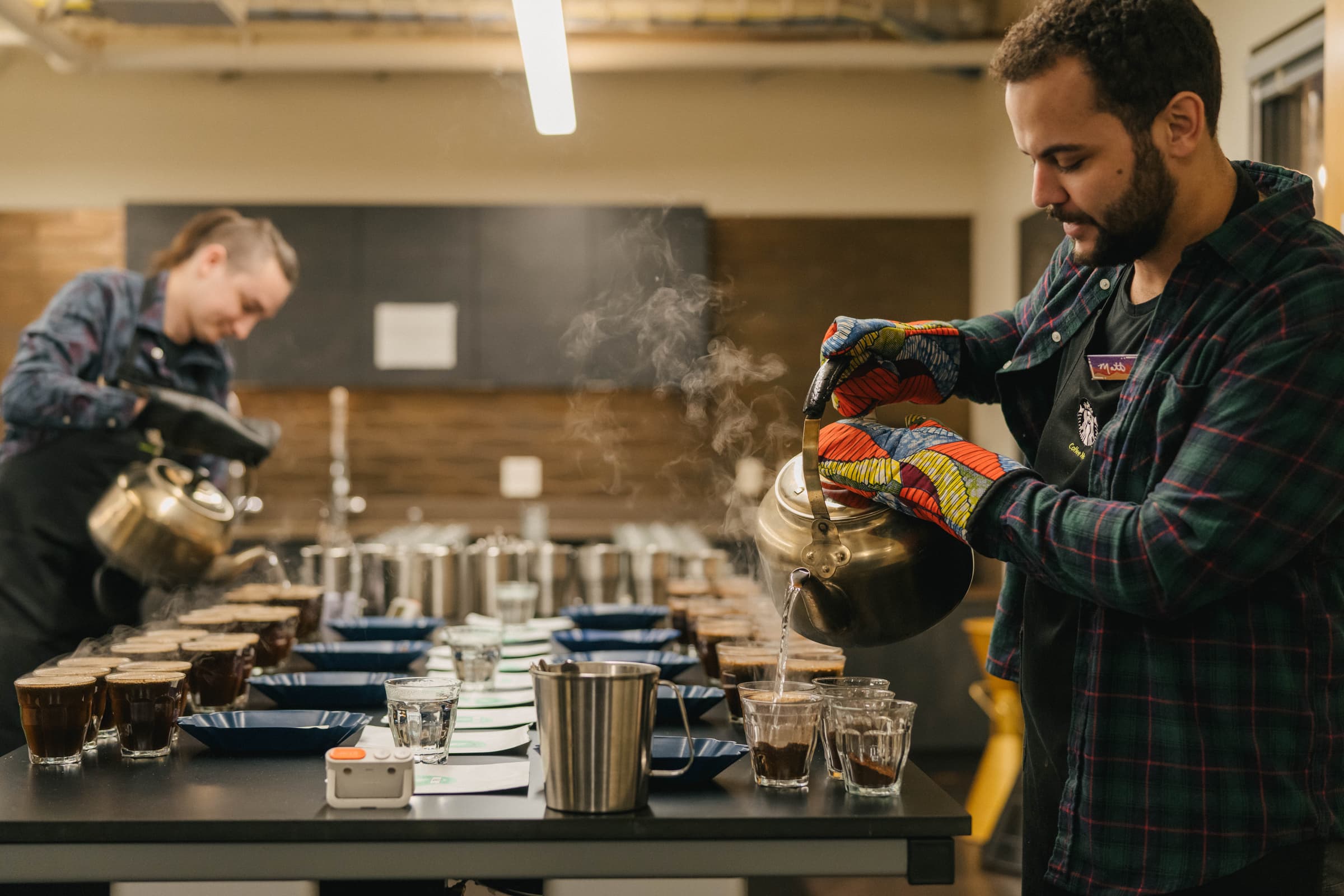
Photo by Starbucks.
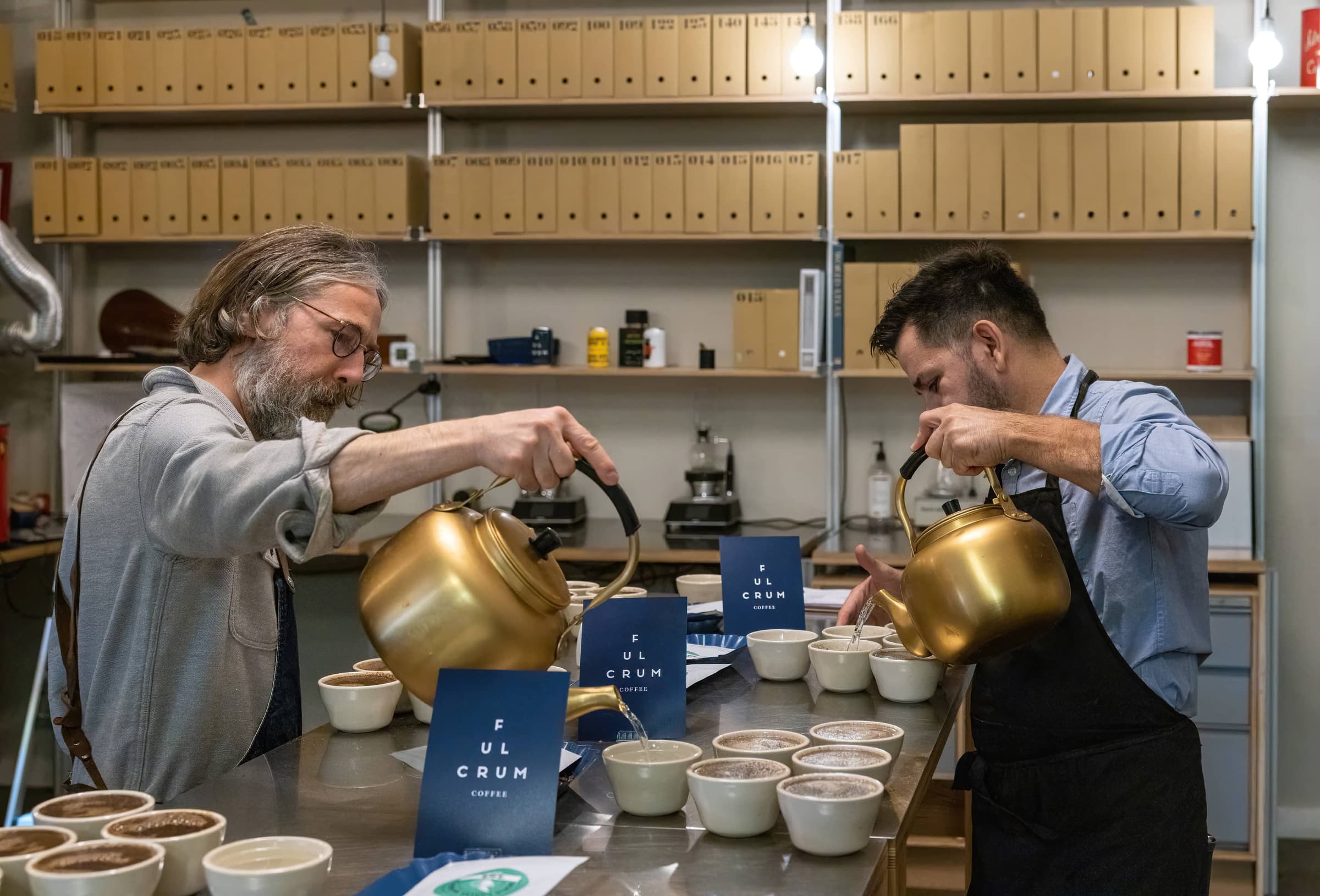
Photo by Fulcrum Coffee Roasters.
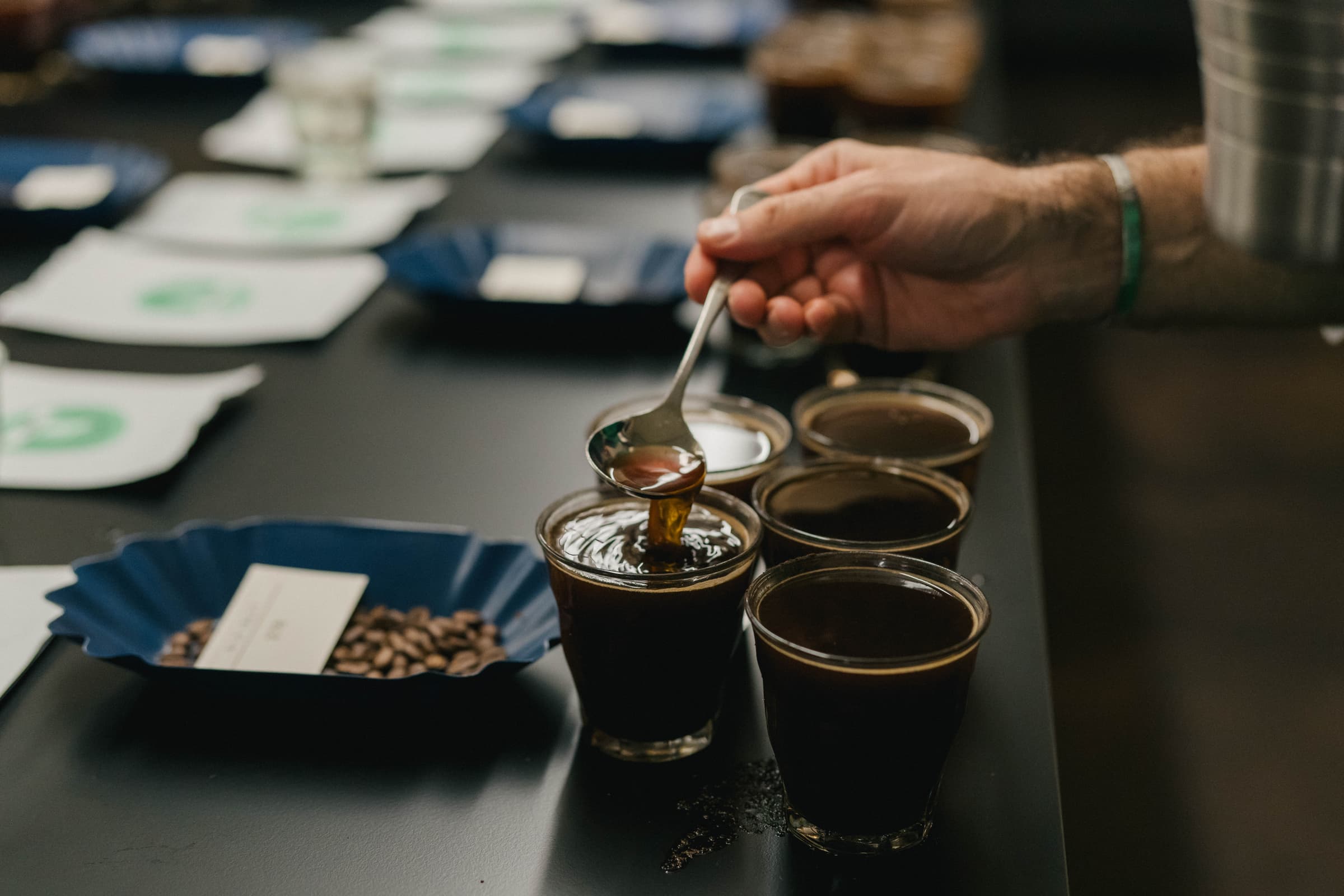
Photo by Starbucks.
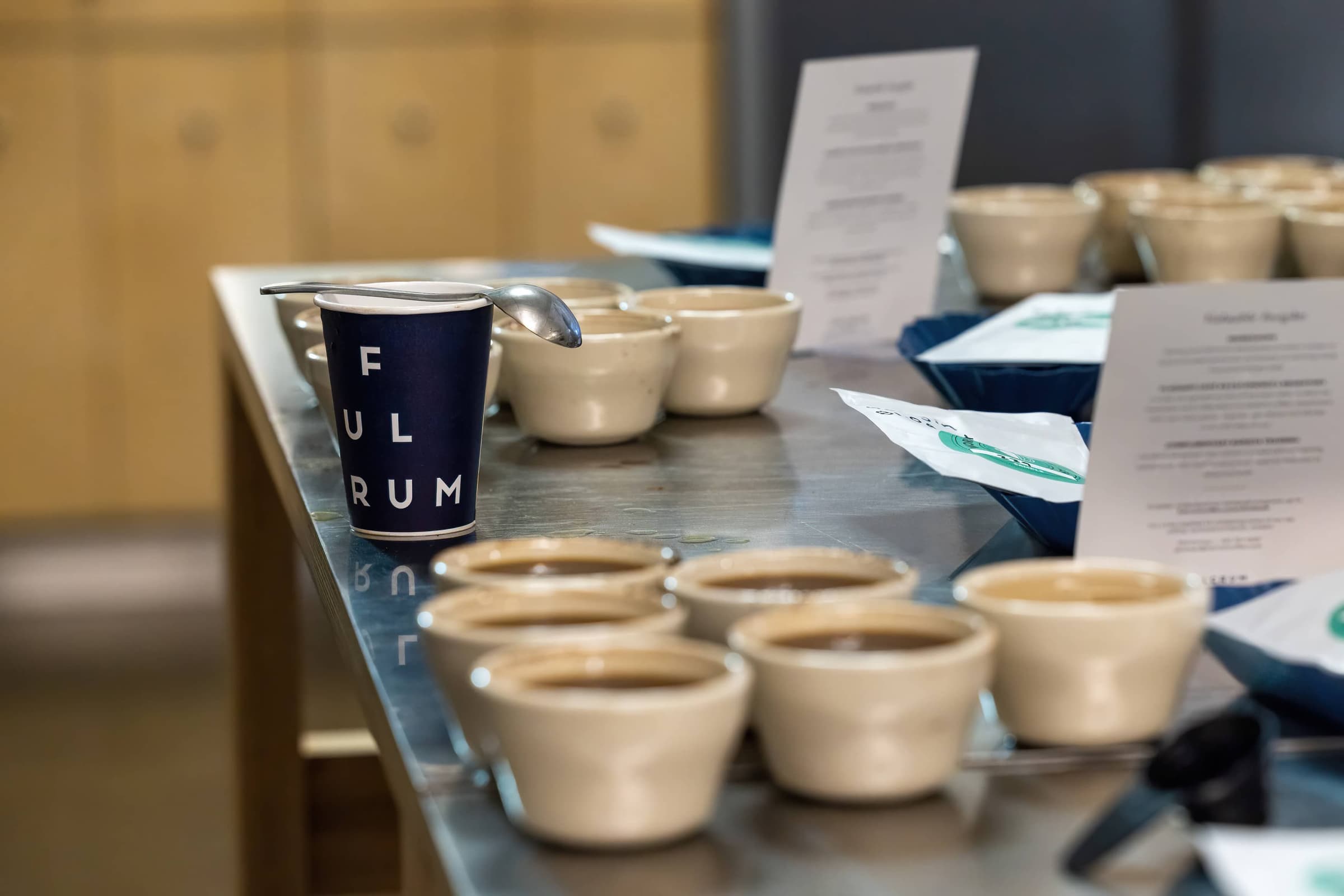
Photo by Fulcrum Coffee Roasters.
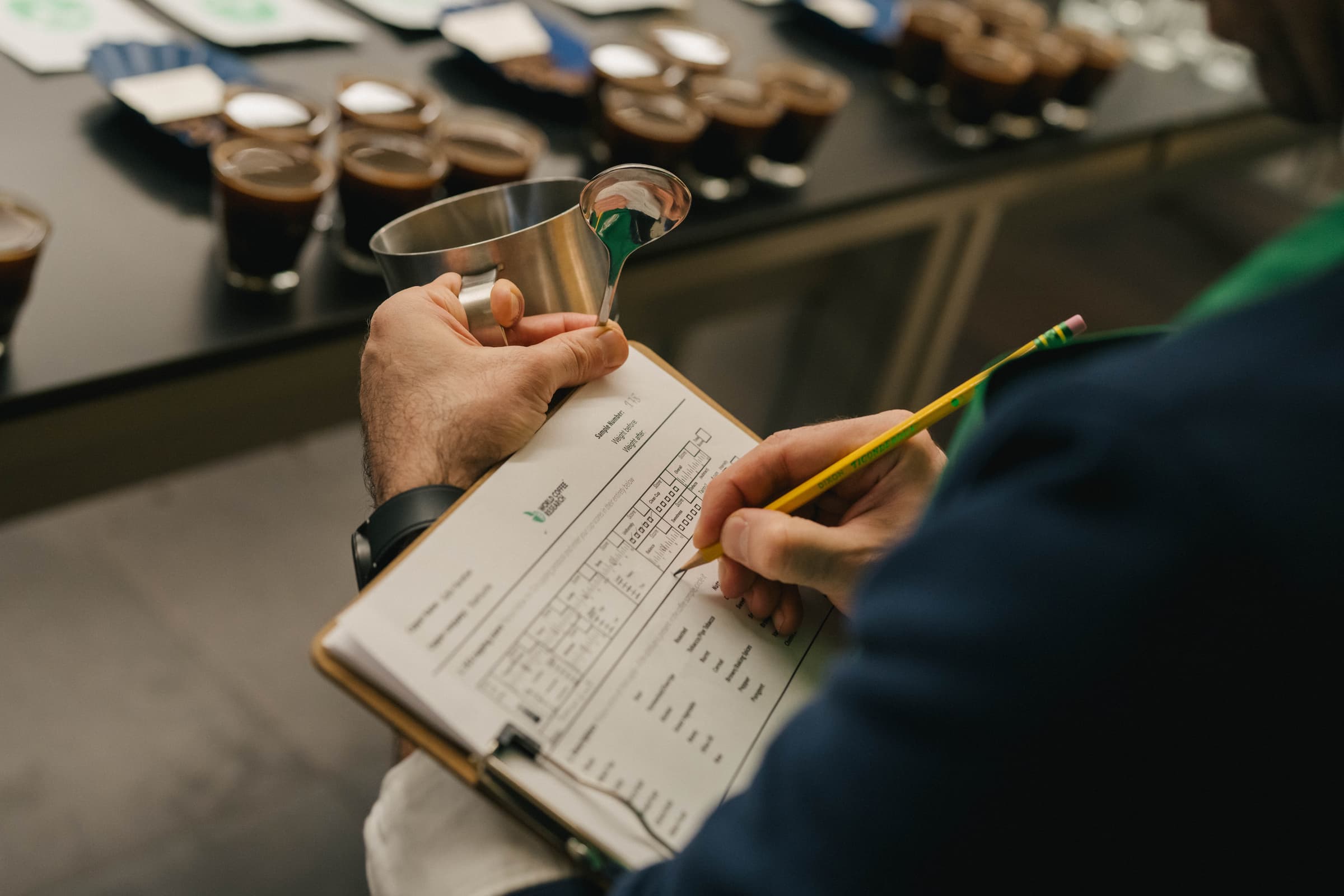
Photo by Starbucks.
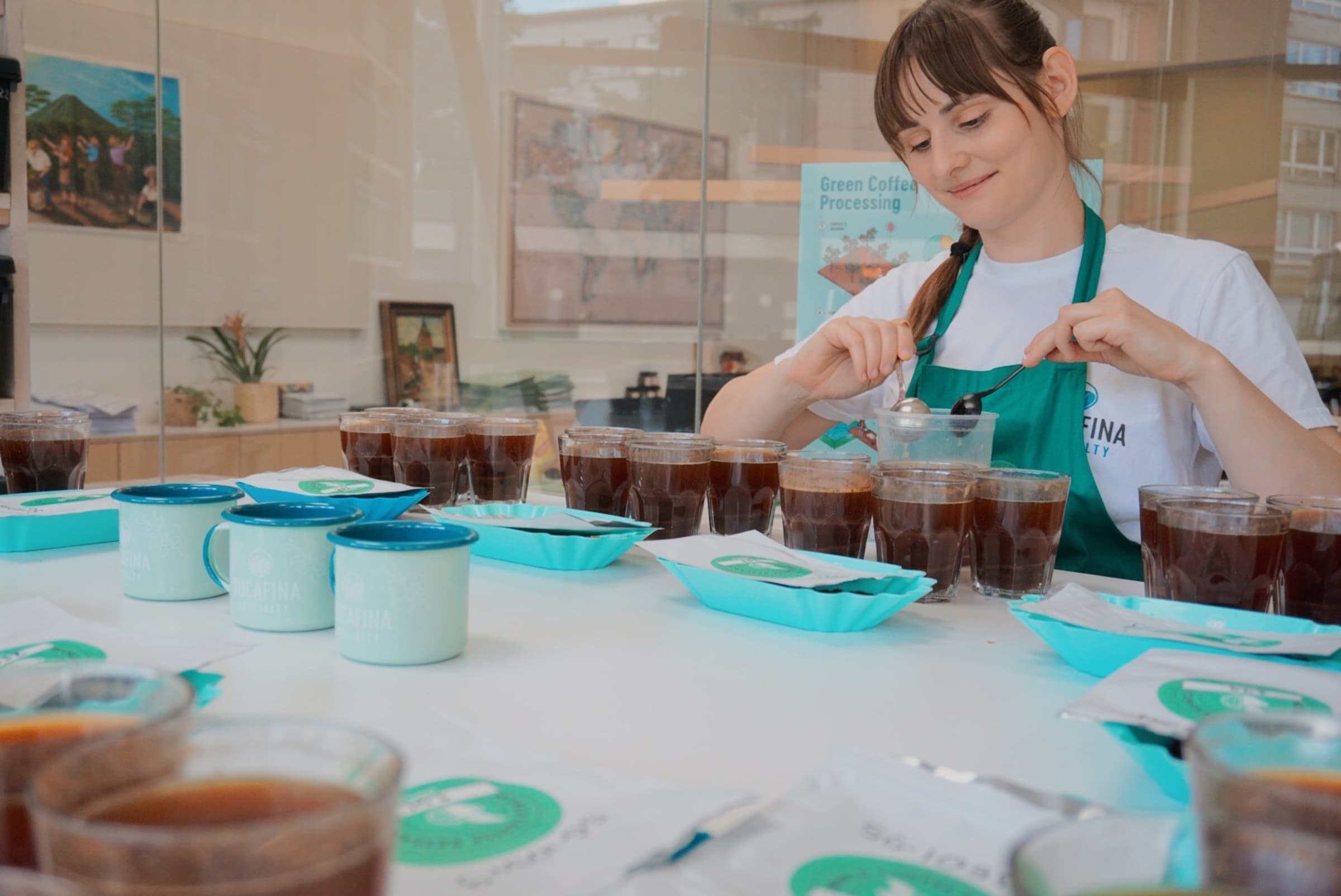
Photo by Sucafina Specialty.
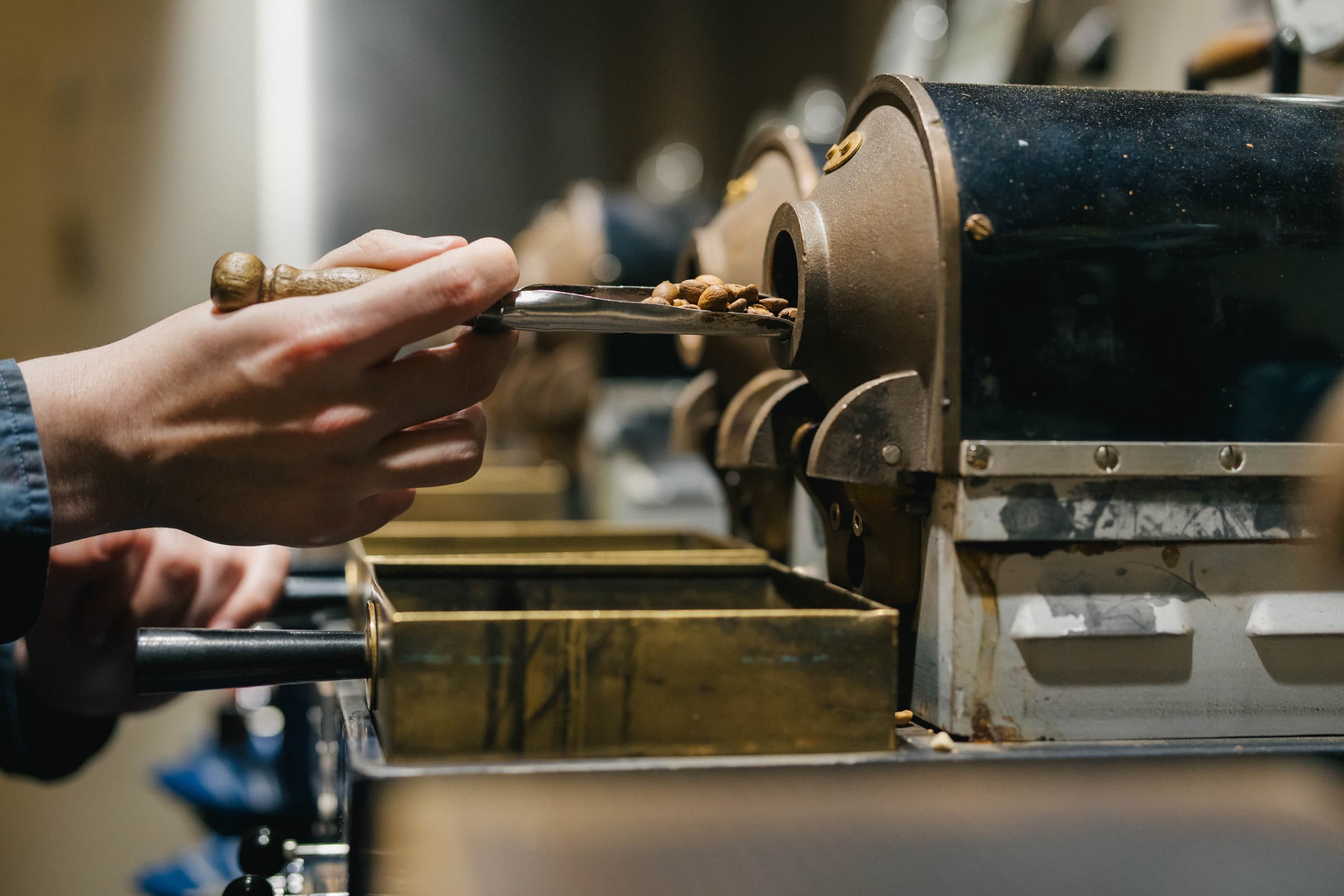
Photo by Starbucks.
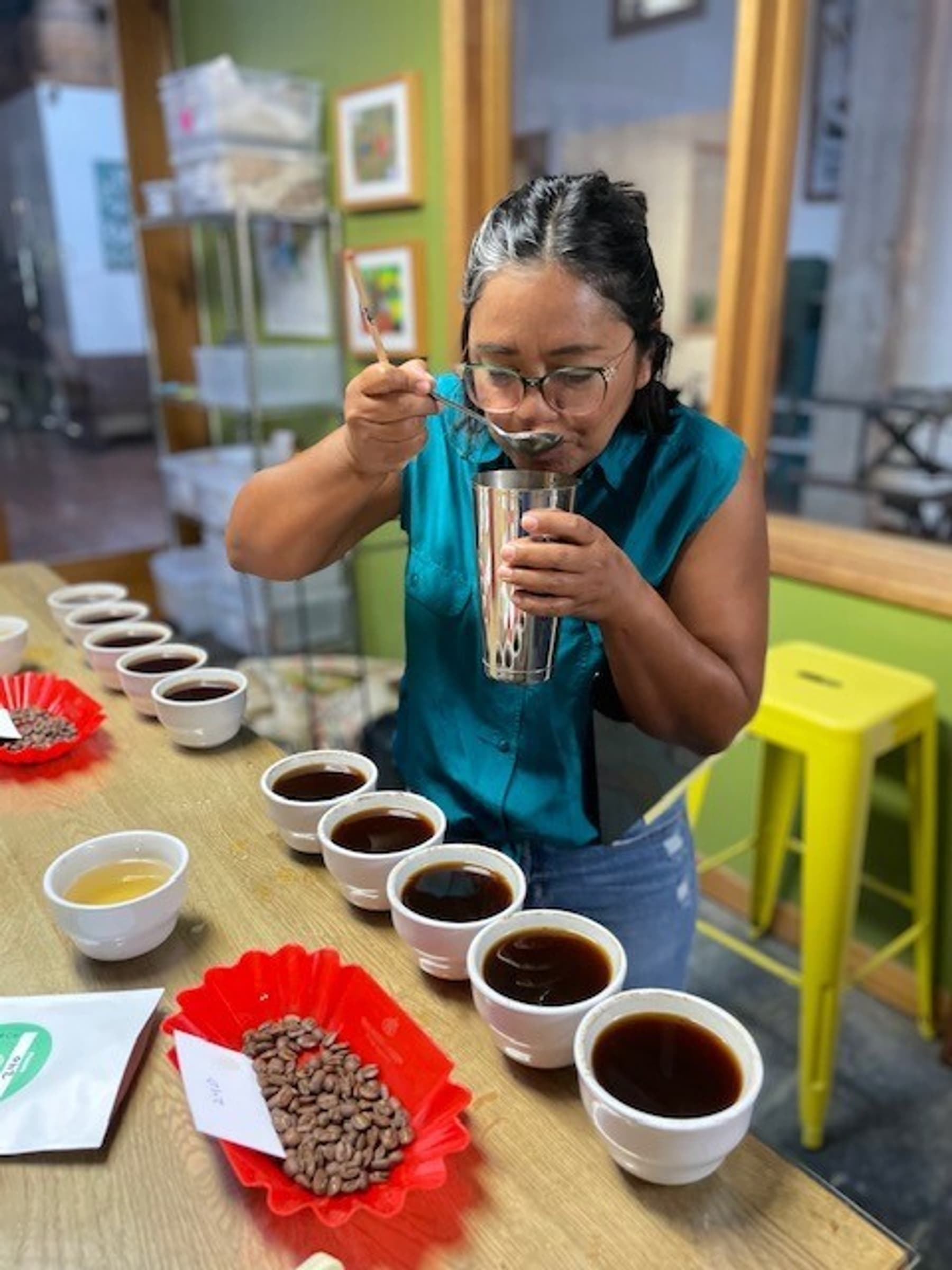
Photo by InterAmerican Coffee US.
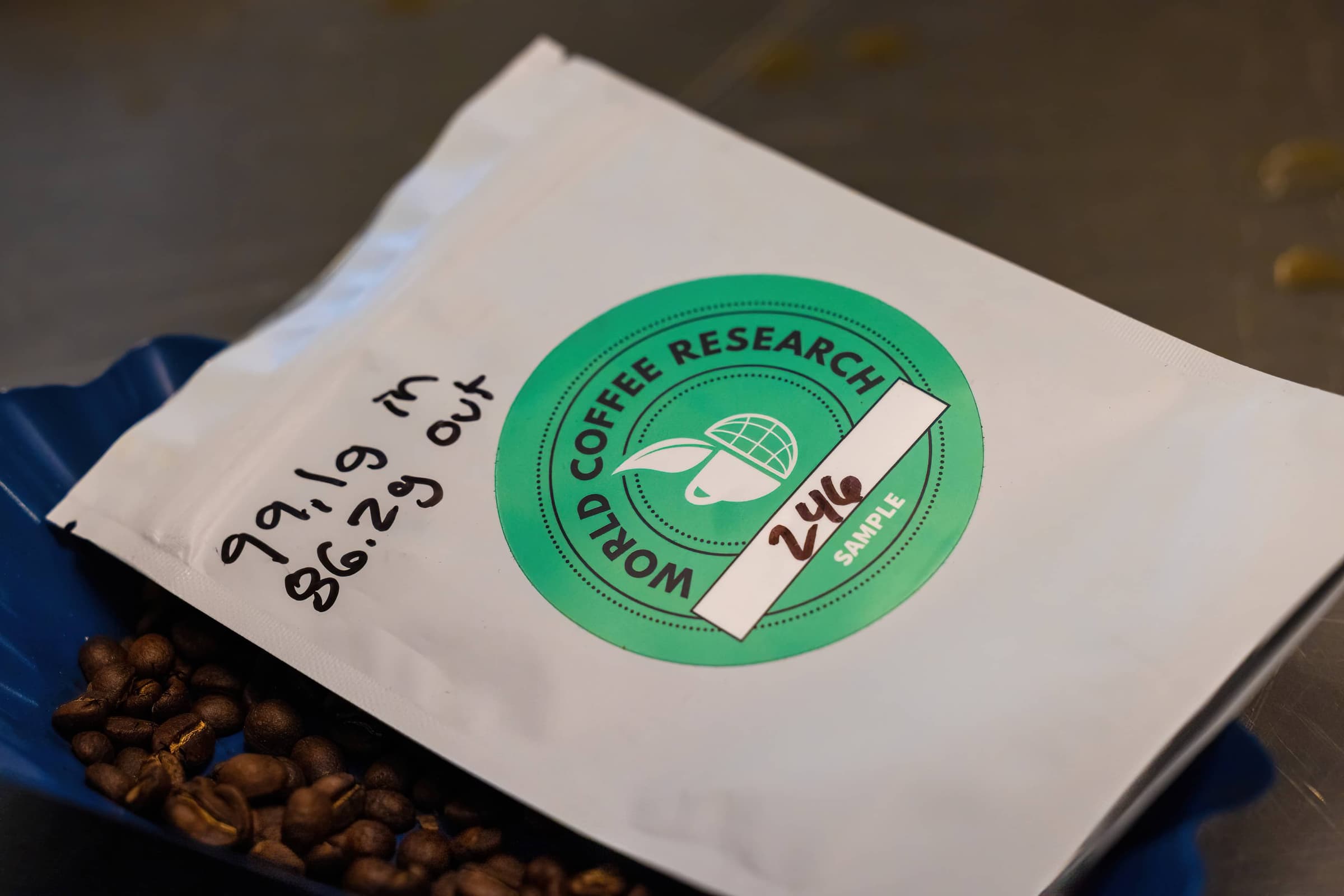
Photo by Fulcrum Coffee Roasters.
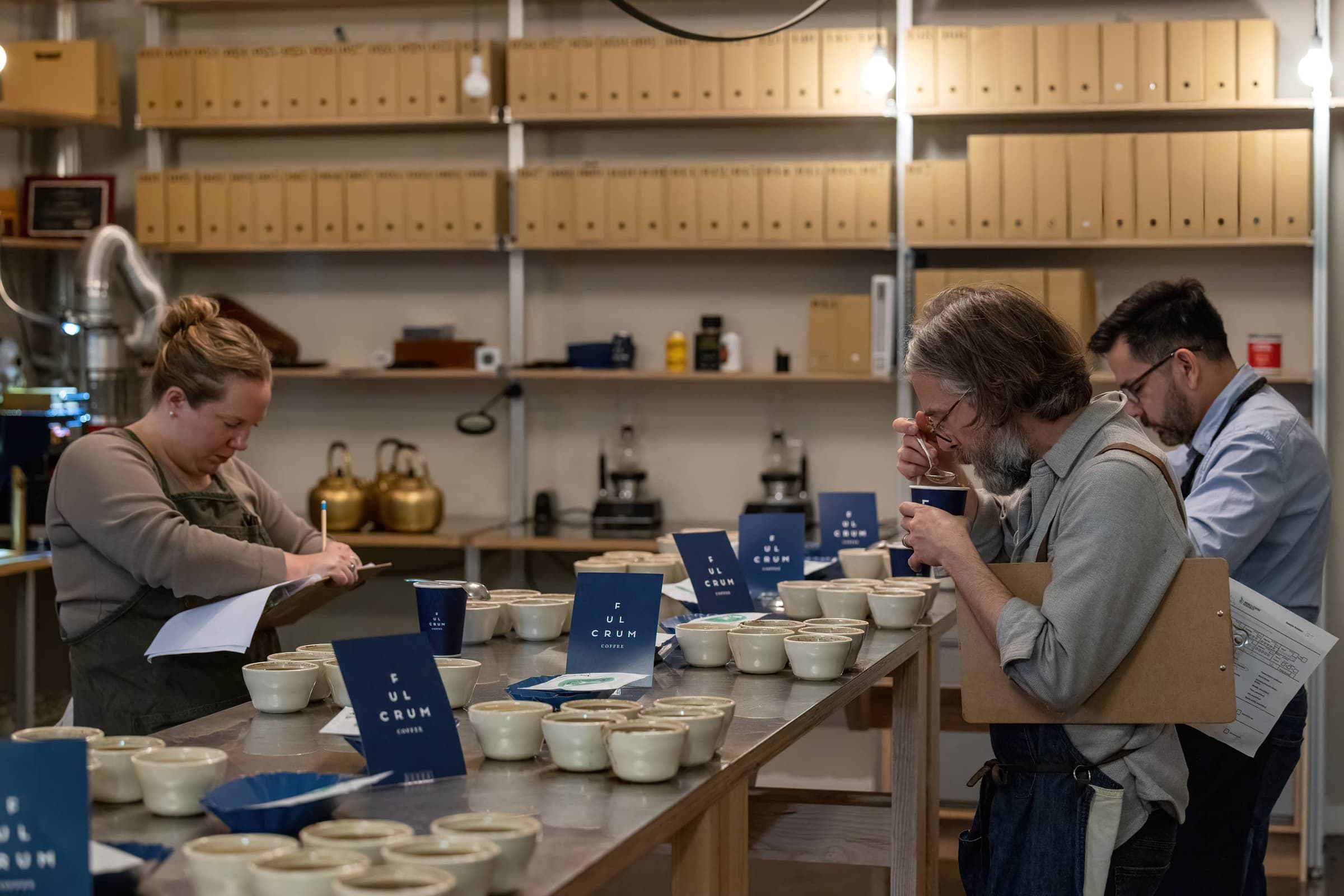
Photo by Fulcrum Coffee Roasters.
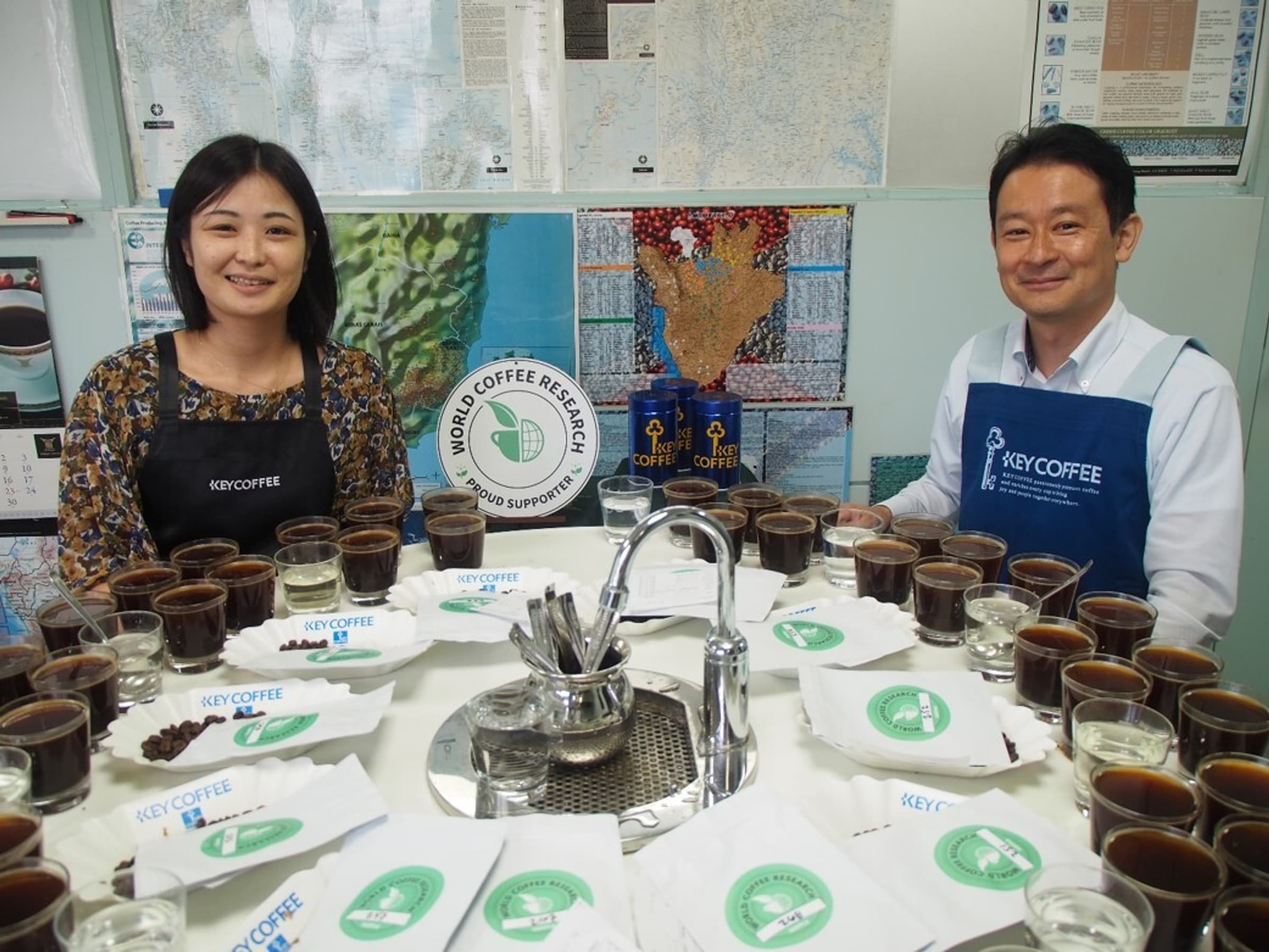
Photo by KEY Coffee.
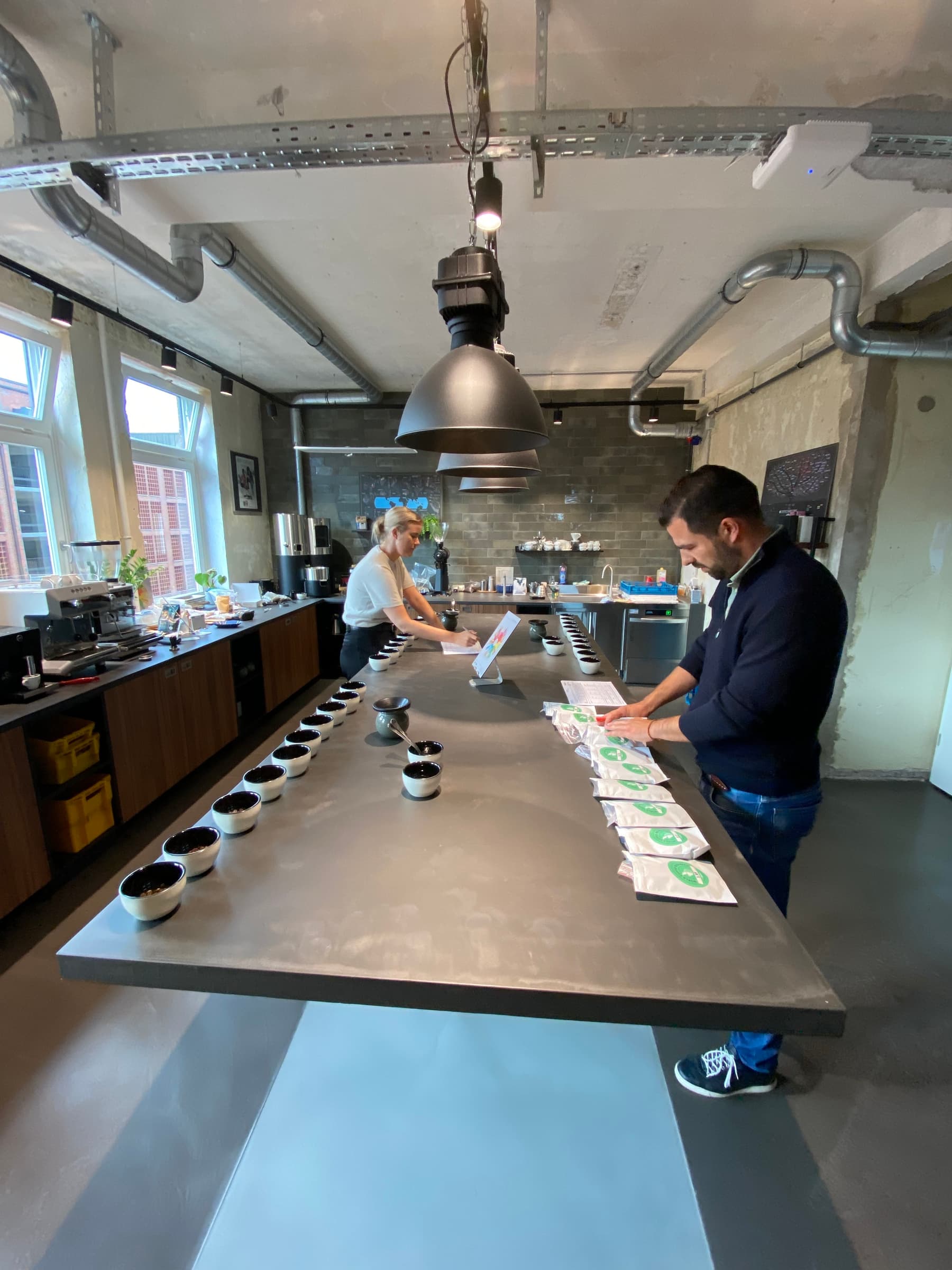
Photo by Tchibo.
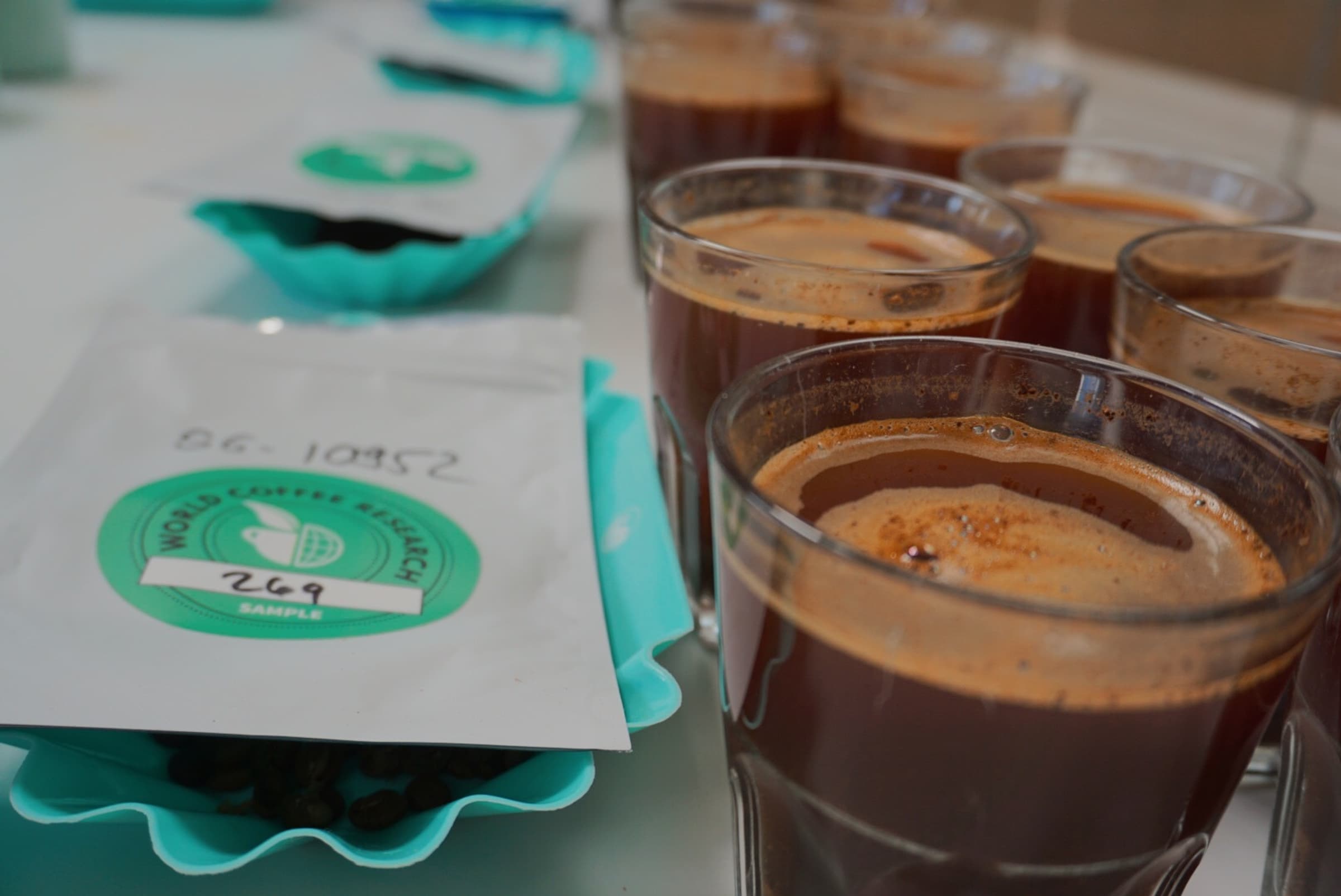
Photo by Sucafina Specialty.
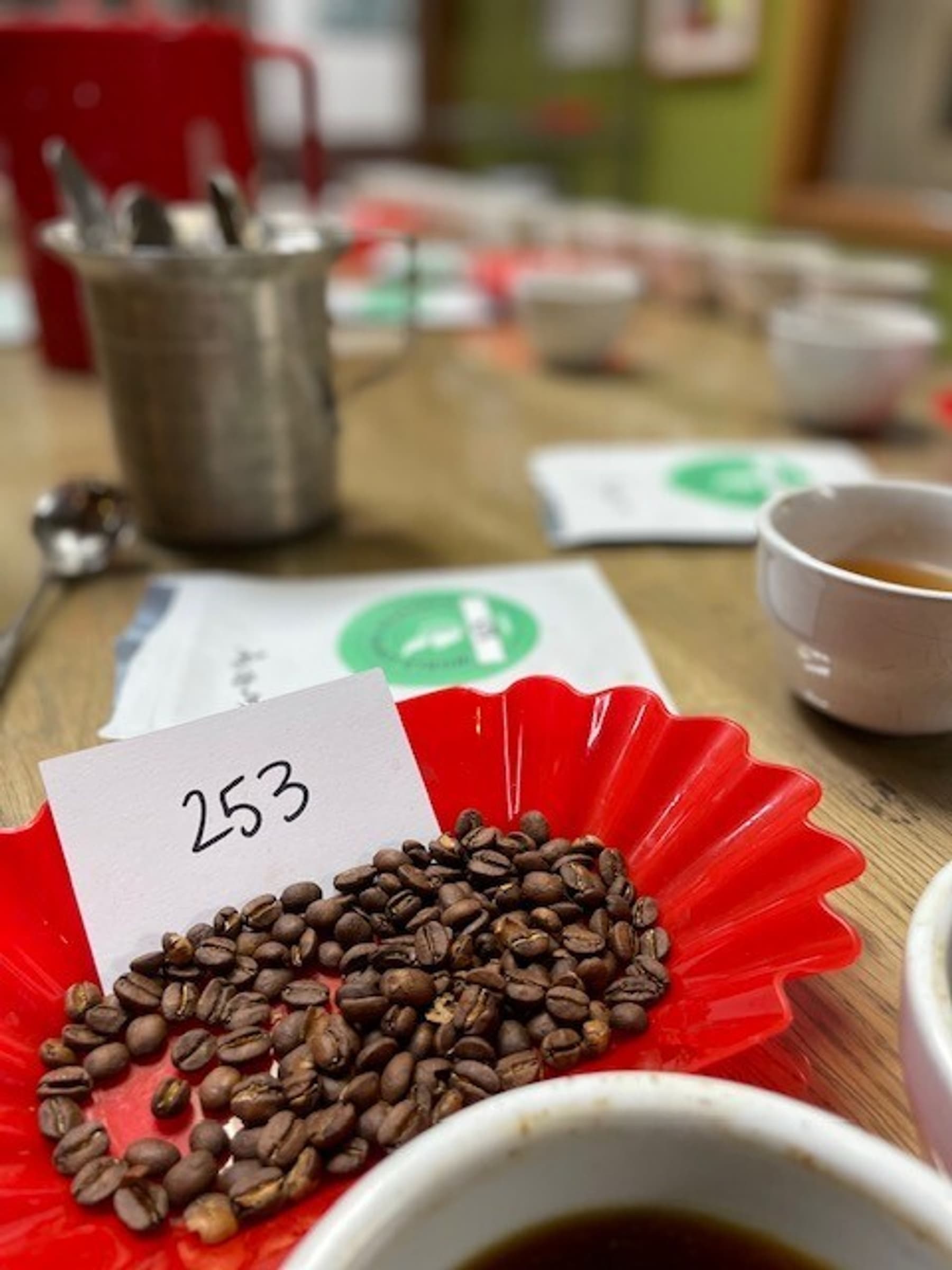
Photo by InterAmerican Coffee US.
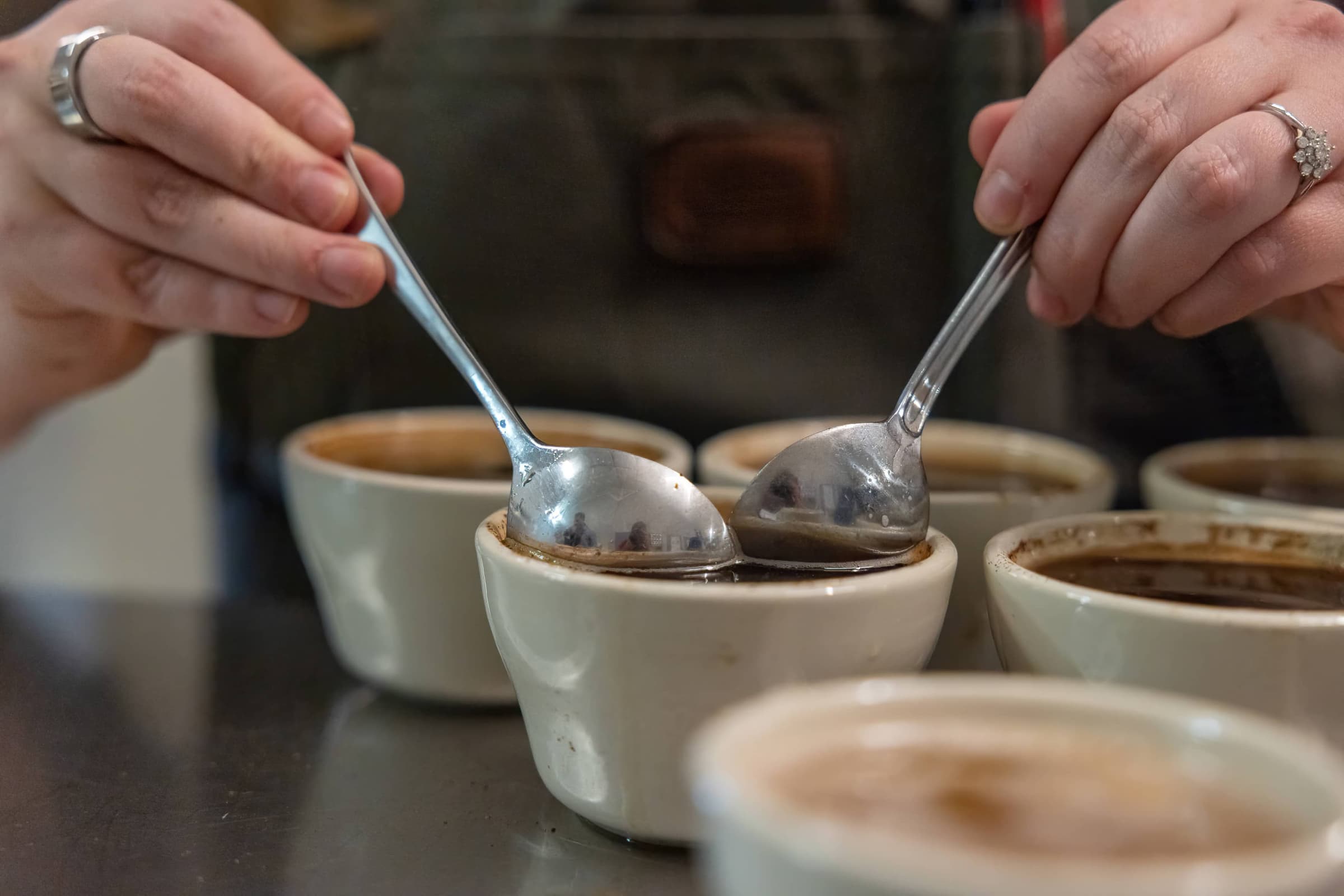
Photo by Fulcrum Coffee Roasters.
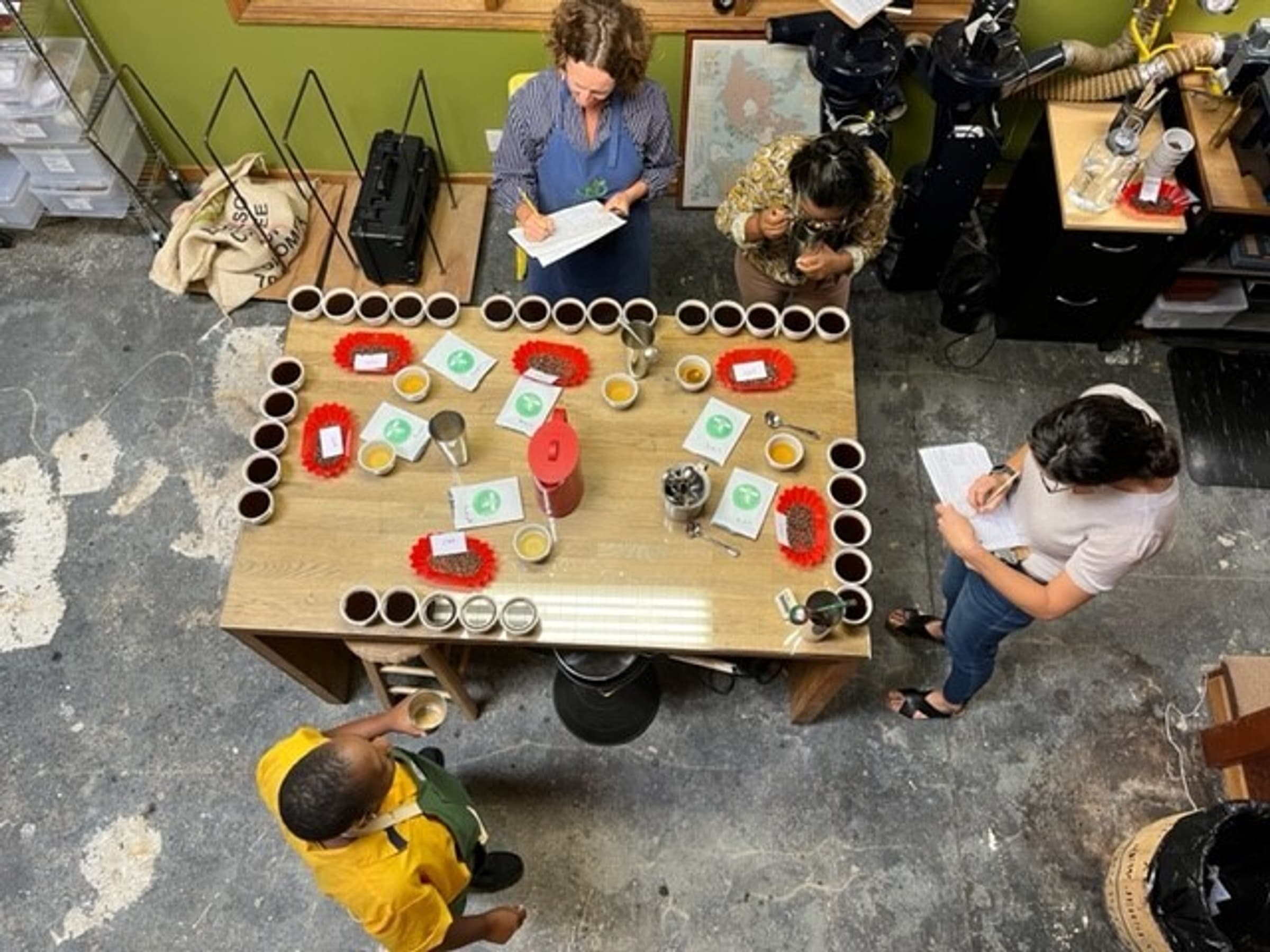
Photo by InterAmerican Coffee US.
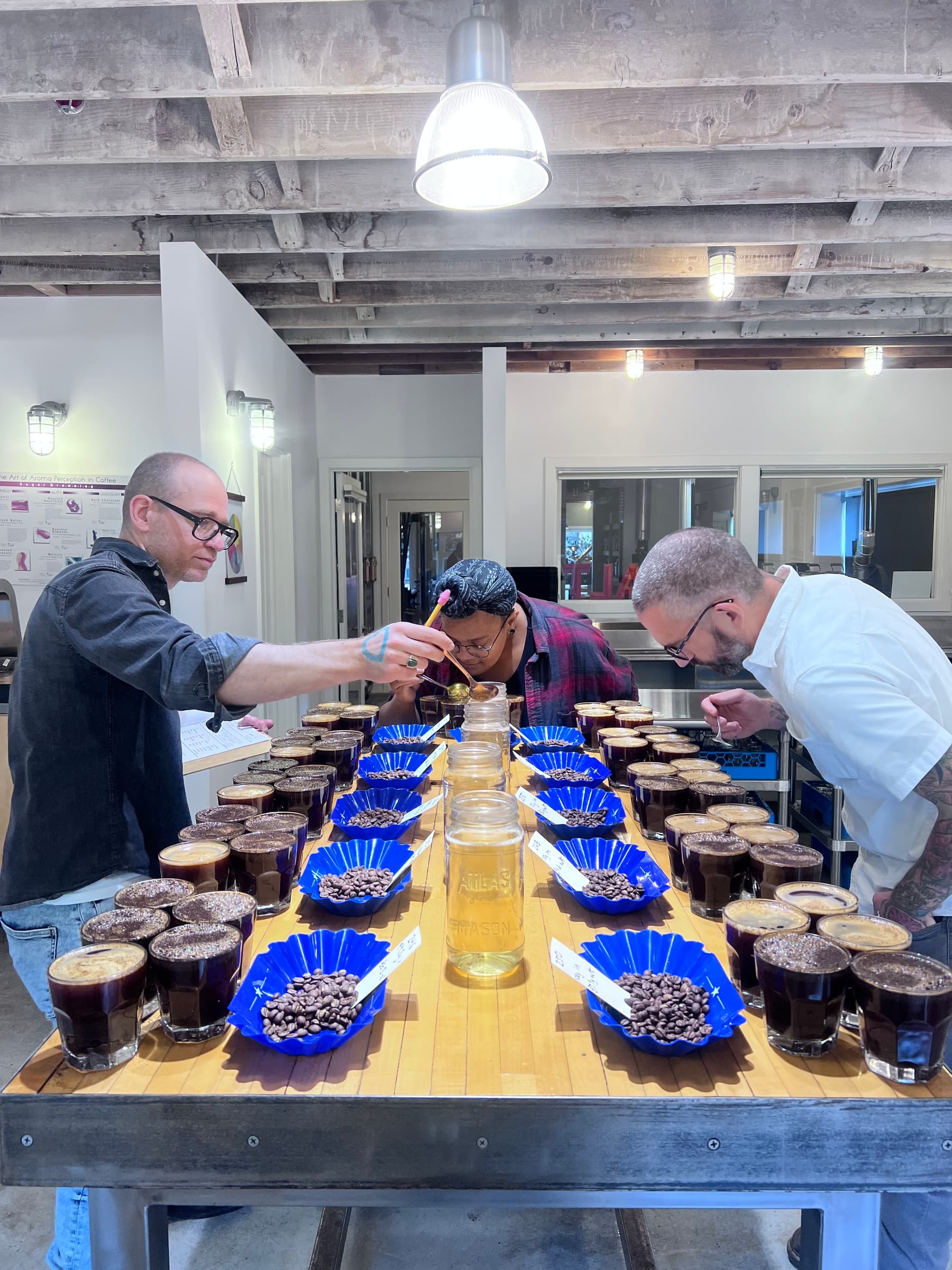
Photo by Atlas Coffee Importers.
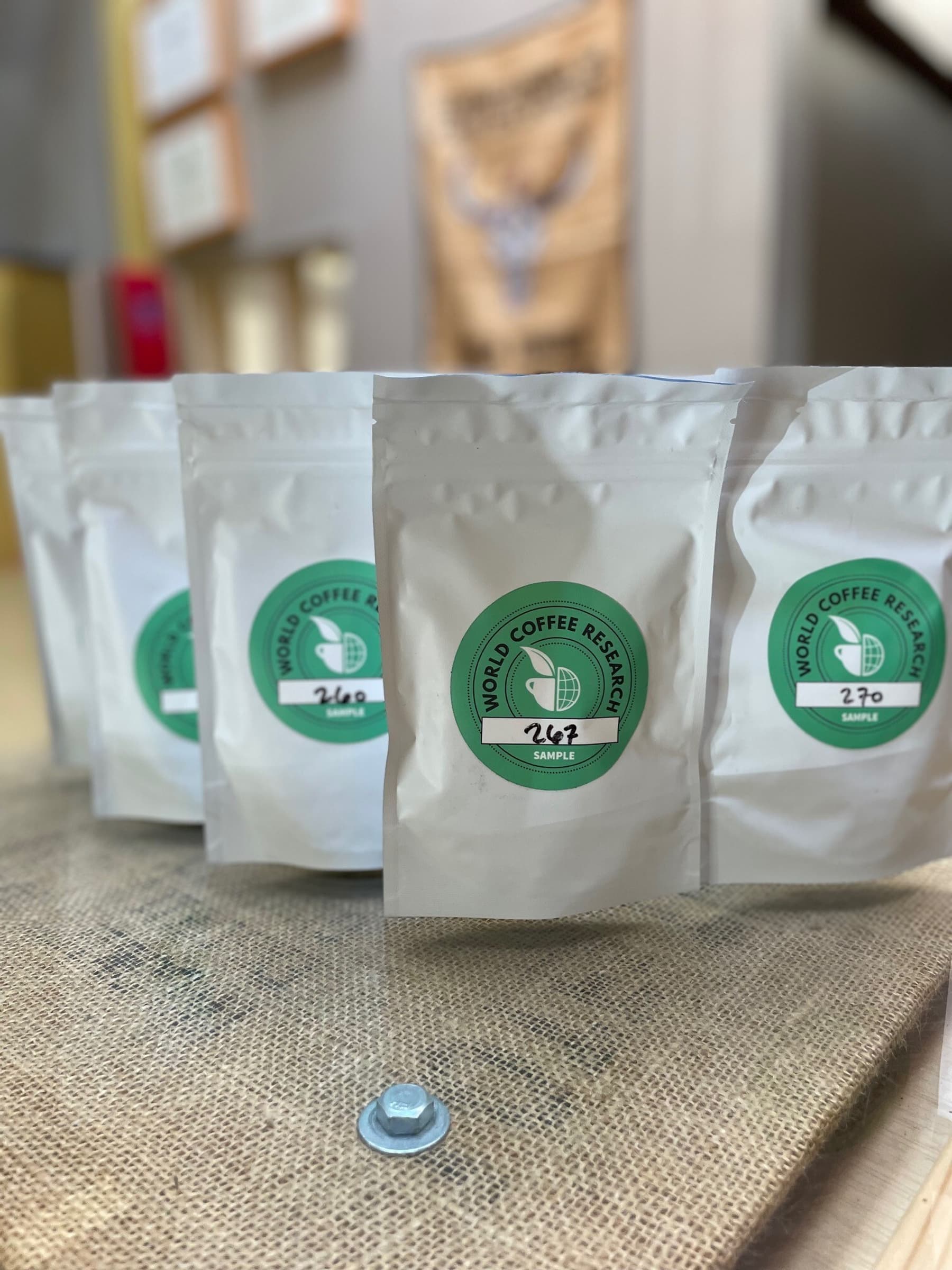
Photo by InterAmerican Coffee US.
Updates
December 2023
This month, a second set of coffee cuppers from World Coffee Research member companies across the globe will receive samples and participate in this experiment's subsequent iteration to provide additional taste and sensory feedback to the International Multilocation Variety Trial. Collecting additional feedback allows us to collect a rich and meaningful dataset from palates across the globe, and we plan to share a more in-depth report of this experiment's findings upon its conclusion in 2024.